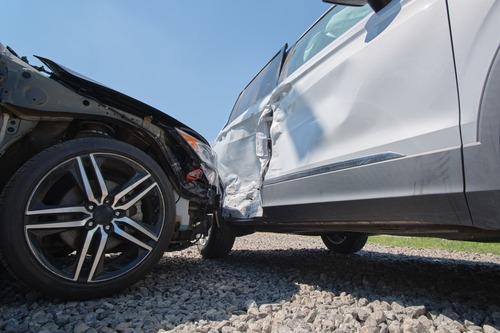At Panchenko Law Firm, we are committed to protecting the rights of those injured in car accidents in Charlotte. We know how frustrating it can be to deal with insurance companies, denied claims, and mounting medical bills. Our team fights to secure fair compensation for your injuries, lost wages, and vehicle repairs. If you’re facing challenges after an accident, we’re here to help. Visit bpcounsel.com to learn more or schedule a free consultation today.
A car crash can be overwhelming, but knowing what to do after a vehicle accident is critical. Taking the right steps protects your safety, strengthens your insurance claim, and ensures compliance with North Carolina laws. From securing the accident scene to dealing with the insurance company and getting vehicle repairs, each action affects your financial and legal outcome.
In this blog, you’ll learn the essential steps to take after a car accident in Charlotte, how to handle insurance claims and vehicle repairs, and when to work with an experienced Charlotte car accident attorney to protect your rights and maximize compensation.
What To Do After a Vehicle Accident: Immediate Steps
A vehicle accident can happen in seconds, but what you do next is critical. Taking the right steps can protect your safety, help with the insurance claim process, and ensure compliance with North Carolina laws.
Ensure Safety First
Move your vehicle to a safe location if possible, but do not leave the scene of the accident. Turn on hazard lights to alert other drivers and prevent further accidents. If you have road flares, place them around the area. Check yourself and any other passengers for injuries before exiting the vehicle.
Call Emergency Services
Dial 911 to report the car accident. North Carolina law requires you to report accidents that cause injuries, death, or property damage exceeding $1,000. Police officers will document the accident scene, gather statements, and create an accident report. Ask for the badge number and police report number for future reference.
Do Not Admit Fault
Avoid discussing fault at the scene. Do not apologize, speculate, or make statements about who caused the car crash. Fault will be determined based on the police report, evidence, and insurance investigations. North Carolina follows contributory negligence laws, meaning if you are even 1% at fault, you may not recover damages.
Exchange Information with Other Drivers
Gather details from all parties involved in the accident, including:
- Full name and phone numbers
- Driver’s license number
- License plate number
- Insurance company and policy number
- Vehicle details (make, model, and color)
If there are other vehicles involved, repeat the process for each driver. This information will be essential when you file a claim with your insurance company.
Document the Accident Scene
Take clear photos of the vehicles involved, vehicle damage, and license plates. Capture road conditions, traffic signals, and further damage to property. If there are visible injuries, document them as well. This evidence will support your insurance claim and protect you if disputes arise.
Speak with Witnesses
If there were bystanders, ask for their phone numbers and statements about the accident. Witness testimony can help establish liability and strengthen your case with the insurance provider or in court.
Gather Essential Information
Collecting accurate details at the accident scene is crucial for your insurance claim and legal protection.
Exchange Information
Get details from all parties involved:
- Full name and phone number
- Driver’s license and license plate number
- Insurance company and policy number
- Vehicle details (make, model, color)
If the driver is not the owner, ask for the vehicle registration.
Document the Scene
Take clear photos of:
- Vehicle damage and other vehicles involved
- Accident scene, traffic signals, and road conditions
- Any injuries or further damage to property
Speak with Witnesses
If anyone saw the car crash, get their phone number and a brief statement.
Get the Police Report
Ask for the police report number and the officer’s badge number. This report helps with insurance claims and fault determination.
Seek Medical Attention
Even if you feel fine after a car accident, injuries can appear later. Seeking medical care protects your health and supports your insurance claim.
Get Evaluated Immediately
Call emergency services if you or other passengers have visible injuries. Even without immediate pain, see a doctor as soon as possible. Whiplash, concussions, and internal injuries may not show symptoms right away.
Keep Medical Records
Save all medical bills, doctor’s notes, and treatment plans. These documents are key when filing a claim for lost wages and medical expenses with the insurance provider.
Follow Treatment Plans
Follow all medical advice, including physical therapy or follow-up visits. Gaps in treatment can weaken your insurance claim and reduce compensation for injuries.
Notify Your Insurance Provider
Reporting the car accident to your insurance company starts the claims process. Acting quickly ensures coverage for vehicle damage, medical bills, and other losses.
File a Claim Promptly
Contact your insurance provider as soon as possible. Provide:
- Date, time, and location of the accident
- Other driver’s insurance information
- Police report number (if available)
- Photos of vehicle damage and accident scene
Delays can complicate the insurance claim process or result in denial of coverage.
Be Cautious with Statements
Do not admit fault or speculate on the cause of the collision. Stick to facts when speaking to the insurance adjuster. Do not accept a quick settlement without reviewing the actual cash value of your vehicle and medical costs.
Understand Your Coverage
Review your policy limits to see what is covered for repair costs, medical expenses, and a rental vehicle if needed. If the insurance company undervalues your claim, consult an attorney before accepting an offer.
Handling Vehicle Repairs and Property Damage
After a car accident, getting your vehicle repaired and assessing property damage is essential. Knowing your rights and options helps ensure fair compensation.
Get a Damage Assessment
An insurance adjuster will inspect your vehicle damage to determine its actual cash value or repair costs. You can also get an independent estimate from a competent appraiser or repair shop.
Choose a Repair Shop
You are not required to use the insurance company’s recommended repair shop. Select a trusted mechanic and ask if they use OEM parts instead of aftermarket parts. Verify whether repairs are covered under your insurance policy.
Understand Total Loss and Payouts
If repair costs exceed the vehicle’s actual cash value, the insurance provider may declare it a total loss. Ensure the offer reflects your vehicle’s value, considering mileage, condition, and upgrades.
Rental Vehicle Coverage
If your policy includes rental vehicle coverage, ask about reimbursement while your vehicle is repaired. Some policies have daily limits on rental costs.
Protect Your Rights
Do not accept low settlements without reviewing the claim. If disputes arise, refer to the appraisal provision in your policy or consult a lawyer.
Understanding Compensation for Injuries and Losses
A motor vehicle accident can cause financial strain due to medical bills, lost wages, and property damage. Knowing what compensation you may be entitled to helps you recover losses.
Medical Expenses
The insurance provider or at-fault insurance company may cover hospital visits, emergency treatment, doctor’s appointments, and physical therapy. Prescription medications and necessary medical equipment may also be included in the insurance claim. Keeping all medical records and receipts ensures you have proof of expenses.
Lost Wages and Future Earnings
If injuries prevent you from working, you may be entitled to compensation for lost income. This includes wages missed during recovery and potential reductions in future earnings if injuries affect long-term employment. Providing medical documentation and employer records supports your claim for lost wages.
Pain and Suffering
Compensation for pain and suffering may include physical pain, emotional distress, and mental health effects caused by the accident. However, North Carolina follows contributory negligence laws, meaning if you are even 1% at fault, you may be ineligible for compensation. Legal guidance may be necessary to dispute fault if your claim is denied.
Property Damage Compensation
The insurance company may pay for vehicle repairs or determine the actual cash value if the car is totaled. If your vehicle is repaired, ensure the insurance adjuster provides a fair assessment of repair costs. Rental reimbursement may also be available while your car is in the shop, depending on your insurance policy.
When to Contact a Car Accident Attorney
Not all car accidents require legal action, but some situations make hiring an attorney necessary. If you are facing serious injuries, disputed fault, or insurance claim issues, legal representation can protect your rights and maximize your compensation.
When Insurance Companies Undervalue or Deny Your Claim
Insurance companies often try to minimize payouts. If your insurance provider undervalues your vehicle damage, denies liability, or offers a low settlement, an attorney can negotiate for a fair amount. Panchenko Law Firm has experience dealing with insurance adjusters who attempt to reduce compensation.
When Fault is Disputed
North Carolina follows contributory negligence laws, meaning if you are even 1% at fault, you may not recover damages. If the insurance company or other parties dispute liability, a lawyer can gather evidence, including accident reconstruction and witness testimony, to support your claim.
When Injuries Lead to High Medical Costs or Lost Wages
Serious injuries often result in medical bills, lost wages, and long-term treatment. An attorney ensures you claim full compensation for these expenses. Panchenko Law Firm fights for injured victims, securing settlements that cover current and future costs.
When You Need Legal Protection
If an insurance company pressures you into a quick settlement or denies your claim unfairly, legal representation is critical. A skilled attorney at Panchenko Law Firm will handle negotiations, file lawsuits if necessary, and fight for your rights in court.
Contact an Experienced Charlotte Car Accident Lawyer Today!
If you’ve been in a car accident in Charlotte, don’t face the insurance company and legal challenges alone. Our team at Panchenko Law Firm is ready to fight for your rights, ensuring you receive fair compensation for medical bills, lost wages, and vehicle repairs. Whether your claim is being undervalued, fault is disputed, or you need guidance through the claims process, we provide the legal support you need.
Contact us at (704) 900-7675 for a free case consultation today!






